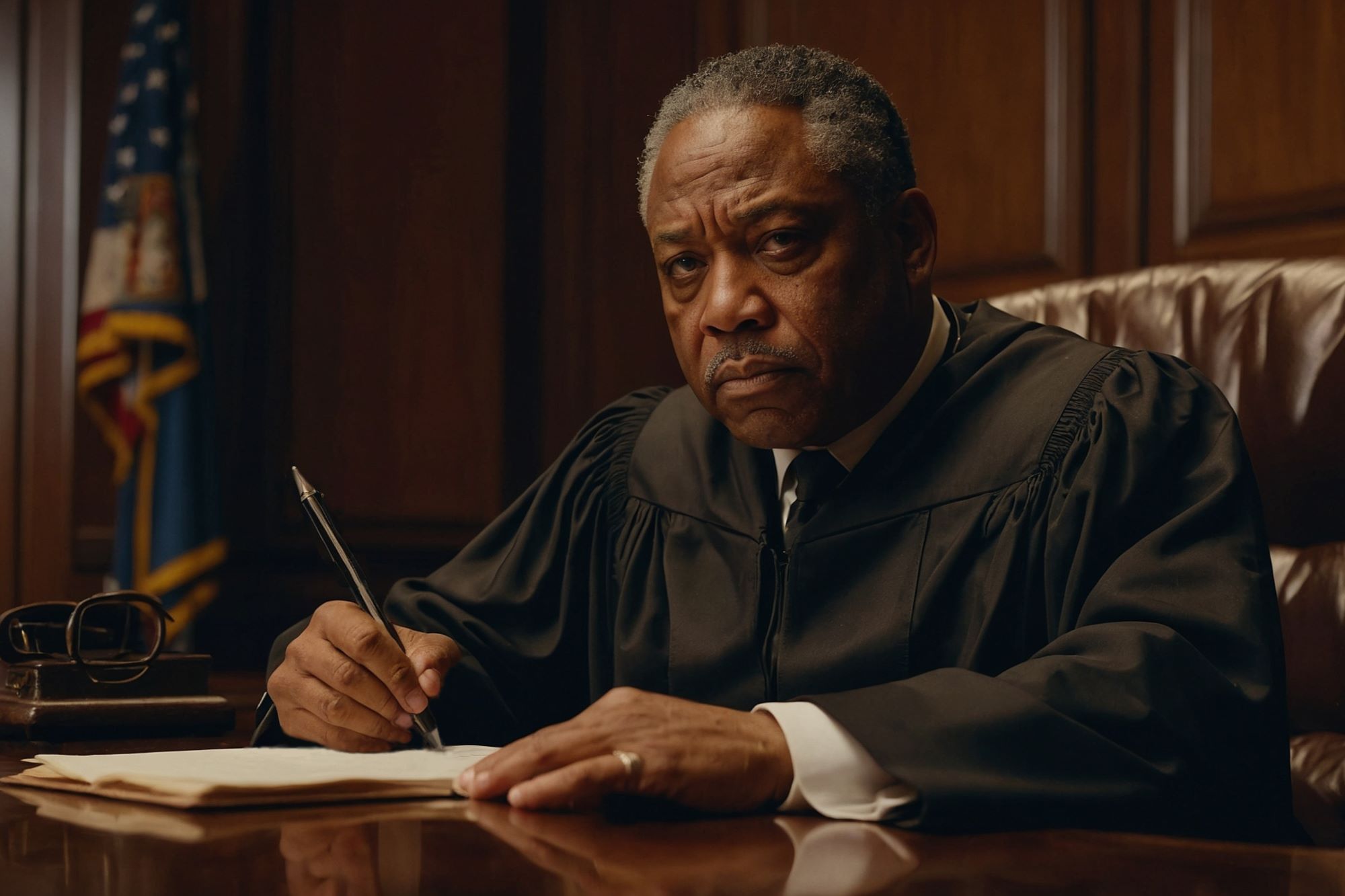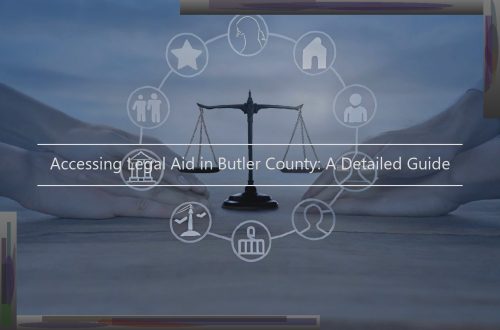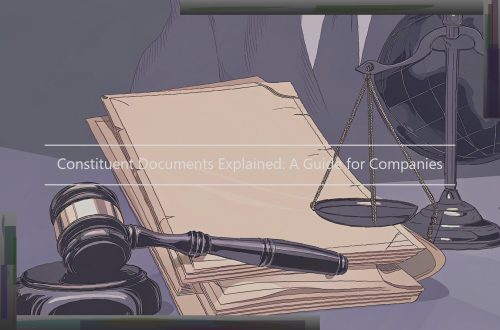
Judicial Authority: Can a Judge Change Your Charges During a Trial?
When you’re standing before a judge in a trial, you might wonder about the extent of the judge’s power. A particularly pressing question is whether a judge can alter the charges against you during the proceedings. This question isn’t just legal curiosity—it has real implications for how a trial unfolds. Let’s break down the intricacies of this topic to get a clearer picture.
Understanding Judicial Authority
To address whether a judge can change your charges during a trial, it’s essential to grasp the concept of judicial authority. Judicial authority refers to the powers vested in judges to interpret, enforce, and apply the law within the courtroom. This authority is fundamental to the judicial process and ensures that justice is administered in a fair and lawful manner. Understanding the scope and limitations of this authority helps clarify the roles and boundaries of judicial actions during a trial.
Interpreting the Law
Judges play a crucial role in interpreting statutes and legal precedents when making decisions in cases. Their interpretations are vital because they help clarify and apply the law to specific circumstances. By interpreting the law, judges ensure that legal principles are consistently applied, providing a framework for how laws should be understood and implemented. This process helps maintain fairness and predictability in the legal system, ensuring that similar cases are treated similarly under the law.
Enforcing the Law
Enforcing the law is another key responsibility of judges. This involves overseeing legal proceedings to ensure that they follow established legal procedures and rules. Judges must ensure that all parties involved in a case, including the prosecution, defense, and witnesses, adhere to procedural standards. This enforcement helps maintain the integrity of the legal process and ensures that cases are conducted in a manner that respects the rights of all parties and upholds the rule of law.
Applying the Law
Applying the law involves making specific decisions based on the legal standards and evidence presented in a case. Judges are tasked with ruling on motions, making decisions about the admissibility of evidence, and ultimately delivering verdicts. This application of the law is critical in resolving disputes and determining the outcomes of cases. Judges must carefully consider the facts, legal arguments, and evidence to make informed decisions that reflect the law’s requirements and principles.
What Does it Mean to Change Charges?
Changing charges involves modifying the criminal allegations against a defendant, which can significantly impact the course of a trial. These modifications can take several forms, each with different implications for the case. Here’s a detailed look at each type of change:
Adding Charges
Adding charges means introducing new allegations against the defendant that were not part of the original case. This typically happens under the following circumstances:
- New Evidence: When new evidence surfaces that reveals additional criminal conduct or details, the prosecution may seek to add charges. For example, if a new witness provides information that suggests further criminal activity, additional charges may be introduced.
- Expanded Scope: As the investigation progresses, it might uncover broader criminal behavior than initially suspected, leading to new charges that address this expanded scope.
- Legal Grounds: New charges must be supported by legal grounds and evidence, ensuring they are relevant to the case and meet the required legal standards.
Dropping Charges
Dropping charges involves removing specific allegations from the case. This can occur in various situations:
- Insufficient Evidence: If the prosecution determines that there is not enough evidence to support the charges, they may decide to drop them. This decision is often based on a reassessment of the evidence and its ability to meet the burden of proof.
- Plea Agreements: In some cases, charges may be dropped as part of a plea agreement where the defendant agrees to plead guilty to other charges in exchange for the dismissal of some allegations.
- Prosecutorial Discretion: The prosecution has the discretion to drop charges if continuing with them is not in the interest of justice or if they no longer believe the charges are viable.
Amending Charges
Amending charges involves altering the nature or severity of the existing allegations. This can include:
- Changing Charge Classification: Modifying a charge from a more serious offense (like a felony) to a less severe one (like a misdemeanor) based on new evidence or legal arguments. For instance, if evidence shows that the crime was less severe than originally charged, the prosecution might request a reduction in the charge’s classification.
- Adjusting Specifics: Altering the specifics of the charge to better fit the evidence. This could involve changing the description of the alleged crime to reflect the accurate circumstances or details as uncovered during the trial.
- Legal Reassessment: Amendments are often necessary to align charges with legal standards and the facts of the case, ensuring that they accurately represent the defendant’s alleged conduct.
Can a Judge Change Your Charges During a Trial?
The straightforward answer is: Generally, a judge cannot unilaterally change the charges during a trial. The authority to change charges primarily lies with the prosecution or, in some cases, the defense. However, the judge plays a critical role in overseeing and deciding on any proposed changes to ensure they are legally justified and fair.
Role of the Prosecution in Changing Charges
The prosecution, representing the state or government, holds the primary responsibility for filing and modifying charges. They have the authority to add charges if new evidence surfaces or if the defendant’s actions are found to warrant further legal action. This often happens before the trial begins but can also occur during the trial if significant new evidence is uncovered. For example, if new forensic evidence reveals more criminal conduct, the prosecution might file to introduce additional charges related to this information.
Moreover, the prosecution can decide to drop certain charges if they believe there is insufficient evidence or if it serves the interest of justice. This decision is typically made based on the strength of the evidence or as part of plea negotiations with the defense. If a key witness becomes unavailable or if the evidence against a particular charge is deemed too weak, the prosecution may choose to drop those charges to streamline the case or reach a more feasible resolution.
Role of the Defense in Changing Charges
The defense, representing the defendant, also plays a role in influencing the charges. They can argue that the charges should be dropped or reduced based on legal deficiencies or lack of evidence. The defense may file motions to dismiss or reduce charges if they believe that the evidence presented does not support the current charges or if there have been legal errors in the case. For example, if the defense can demonstrate that the evidence does not meet the legal requirements for a particular charge, they may successfully argue for its dismissal.
Furthermore, the defense can engage in negotiations with the prosecution to have some charges dropped or reduced in exchange for a guilty plea on other charges. This type of negotiation can be a strategic move to achieve a more favorable outcome for the defendant. By agreeing to plead guilty to lesser charges, the defendant might avoid the risk of a harsher sentence or additional charges, facilitating a resolution that is beneficial for both parties.
Judicial Role in Changing Charges
While judges do not have the authority to independently change charges during a trial, they play a vital role in overseeing and deciding on changes proposed by other parties. Their involvement ensures that the process is fair, legal, and consistent with the principles of justice.
Reviewing Motions
Judges review motions filed by the prosecution or defense concerning changes to charges. These motions can include requests to add, drop, or amend charges based on new evidence or legal arguments. The judge’s role in this process includes:
- Assessing Justification: Judges evaluate whether the proposed changes are justified by the facts and evidence presented. They consider if the changes align with legal standards and the overall context of the case.
- Legal Permissibility: Judges determine whether the proposed changes are legally permissible. This involves checking if the modifications adhere to procedural rules and statutory requirements.
- Evaluating Impact: They assess the impact of the proposed changes on the trial’s fairness and integrity, ensuring that adjustments do not undermine the legal process.
Ruling on Amended Charges
When the prosecution requests to amend the charges, the judge is responsible for deciding whether to allow these amendments. This ruling is based on several factors:
- Legal Standards: Judges review the request against legal standards to ensure that the amendments are in line with legal precedents and statutes.
- Evidence Presentation: The judge examines the evidence presented to support the amendments. They need to be convinced that the new or altered charges are supported by the facts of the case.
- Case Context: Judges consider the context of the case, including the stage of the trial and the potential impact of the changes on the defendant’s ability to mount a defense.
Ensuring Fairness
Judges are tasked with ensuring that any changes to charges do not infringe upon the defendant’s rights and that the process remains fair. This responsibility includes:
- Adequate Notice: Judges must ensure that the defendant receives proper notice of any new or modified charges. This allows the defendant adequate time to understand and prepare for the changes.
- Preparation Time: They must provide sufficient time for the defendant to adjust their defense strategy in light of the new charges. This helps to prevent any unfair disadvantage.
- Protecting Rights: Judges oversee the process to make sure that the changes do not violate the defendant’s constitutional or legal rights, ensuring that the trial remains just and equitable.
Legal Precedents and Examples
Several legal precedents illustrate how charges can be modified during a trial:
Case 1: The State v. Johnson
In this case, the prosecution introduced new charges during the trial after discovering additional evidence. The judge allowed the new charges, but the defense argued that the timing was unfair and could affect the defendant’s right to a fair trial.
Case 2: The People v. Smith
The defense successfully argued for a reduction in charges based on the lack of evidence. The judge agreed to the reduction, showing that judicial decisions can impact the charges, but the initiative came from the defense’s argument.
Key Takeaways
Understanding how charges may be modified during a trial involves recognizing the roles of different parties in the judicial process. Here’s a detailed look at the key takeaways:
| Aspect | Role | Details |
| Prosecution Power | Controls modification of charges | – Add Charges: Can introduce new charges based on new evidence. – Drop Charges: Can remove charges if evidence is insufficient. – Amend Charges: Can alter charges to better fit evidence. |
| Defense Influence | Can challenge or negotiate changes | – Challenge Charges: File motions to dismiss or reduce charges. – Negotiate: Seek plea deals to have charges reduced or dismissed in exchange for guilty pleas. |
| Judicial Oversight | Reviews and rules on proposed changes | – Review Motions: Assess whether changes are legally justified. – Ensure Fairness: Confirm that changes do not violate defendant’s rights. – Ruling: Decide whether to allow changes. |
Implications for Defendants
For defendants, the possibility of charges being altered during a trial can significantly impact their case. Changes to charges can affect everything from the legal strategy employed to the potential outcomes of the case. These alterations might shift the focus of the defense or require adjustments in how evidence is presented. Defendants must stay vigilant and adaptable to navigate these changes effectively, as each modification could influence the overall strategy and tactics during the trial.
Preparation
Defendants need to be well-prepared for the potential of new or changed charges, as these modifications can have substantial effects on their defense strategy. When charges are altered, it may introduce new elements to the case that require a reassessment of the evidence and legal arguments. This preparation involves not only understanding the new charges but also revising legal strategies, gathering additional evidence if necessary, and anticipating how these changes might influence the courtroom dynamics.
Legal Representation
Having competent legal representation is essential when facing the possibility of charge modifications. A skilled attorney can provide invaluable guidance through the complexities of adjusting to new or altered charges. They help ensure that the defendant’s rights are protected and that any changes to the charges are properly addressed. An experienced lawyer can craft an effective strategy to handle the revised charges, negotiate with the prosecution, and advocate for the defendant’s best interests throughout the trial.
How to Prepare for Charge Modifications
Here are some practical steps for defendants to prepare for potential changes in their charges:
Stay Informed
Defendants should stay informed about any motions or changes proposed during the trial. This involves actively monitoring the progress of the case and being aware of any legal filings or adjustments made by the prosecution or defense. Staying updated helps defendants understand the current status of their case and prepare for any new developments that might arise.
Consult Your Lawyer
It is crucial for defendants to consult closely with their lawyer to grasp the implications of any changes in the charges. Open communication with legal counsel ensures that defendants receive expert advice on how these modifications affect their case. Lawyers can explain the legal nuances of the changes and advise on the best course of action to adapt to the revised charges.
Adjust Defense Strategy
Defendants need to be ready to adjust their defense strategy based on the modified charges. This may involve re-evaluating the evidence, altering legal arguments, and preparing new defense tactics. Flexibility in adapting the strategy ensures that the defense remains robust and relevant in light of the new or changed charges, improving the chances of a favorable outcome in the trial.





